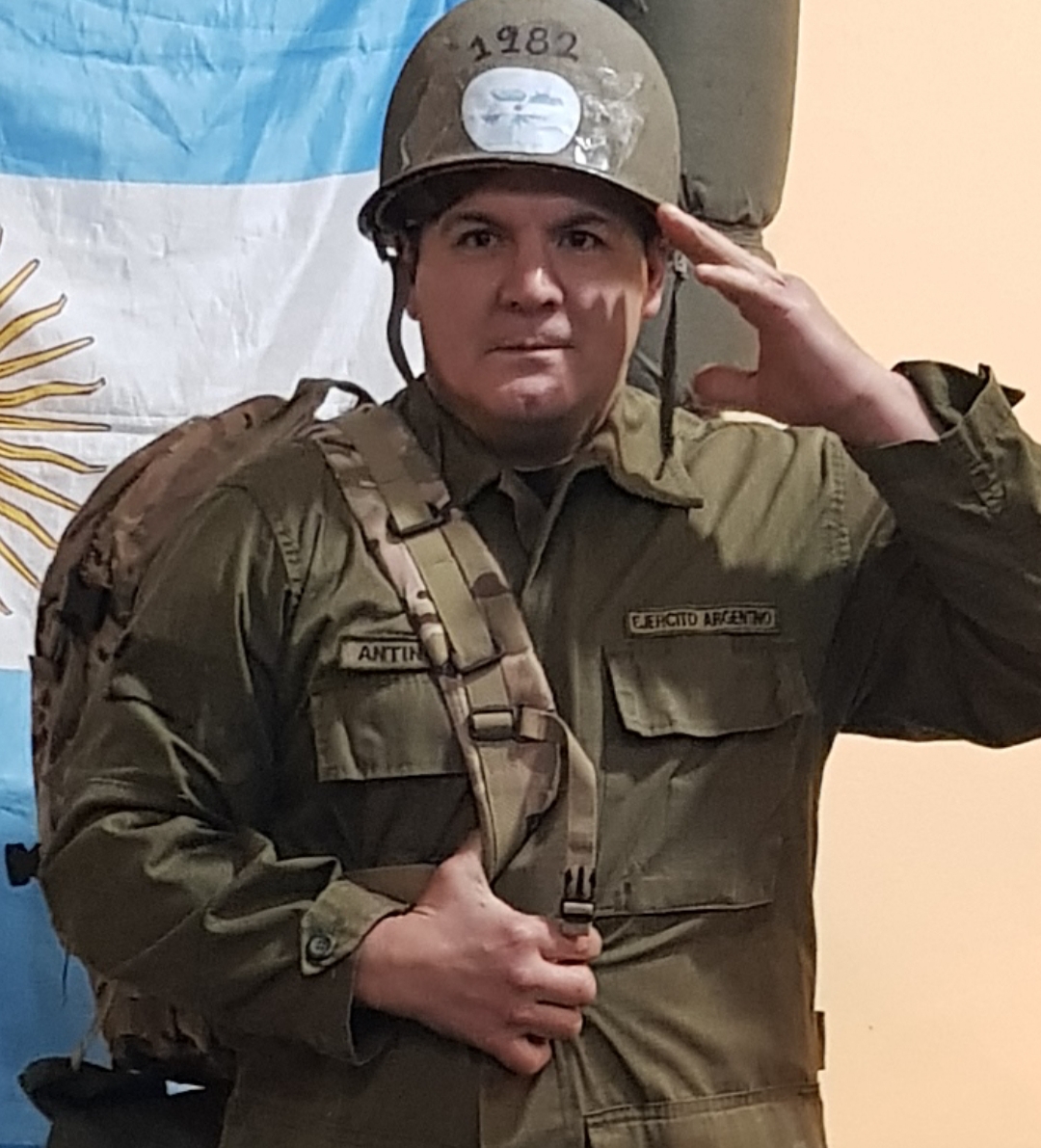One Night of the Brave Squadron || Una noche del Escuadrón de Valientes [Eng/Esp]
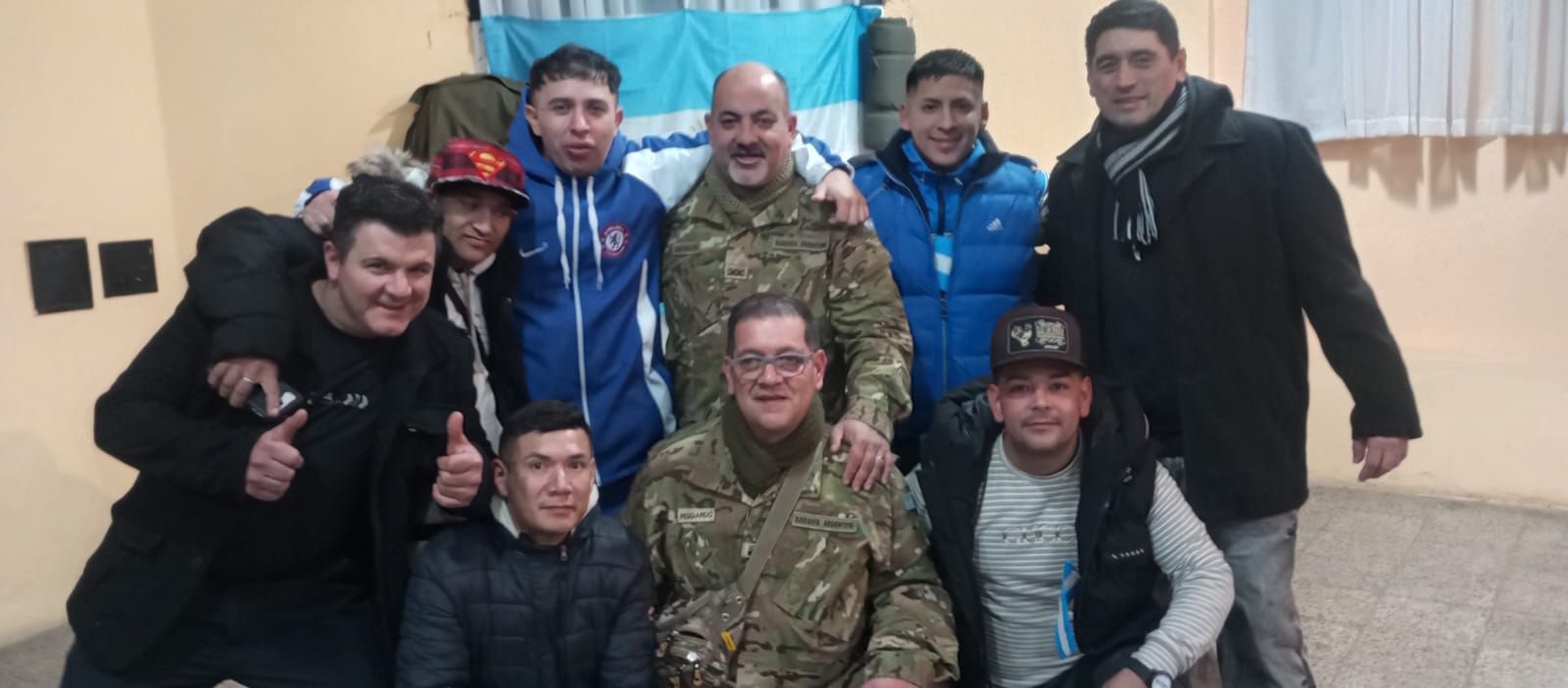

I arrived when the afternoon had already surrendered to the June cold. From the street, a faint murmur mixed with laughter, guitar chords, and the metallic tapping of a gas heater. Upon entering, the first thing that caught my eye was the stage: a black curtain with white letters proclaiming "Brave Squadron," flanked by the Argentine and Christian flags. The warm lights outlined the silhouettes of two men in camouflage jackets, rehearsing a hug that spoke volumes.
In the center, Rubén—the spiritual leader of the meeting—took the microphone. Beside him, Marcelo, recently arrived from the interior of the province, held a mate that trembled slightly in his hands. Rubén placed his arm around Marcelo's shoulders and began:
"When you fall, sometimes you think there's no going back. But here we are, to prove otherwise."
Marcelo nodded. The audience fell silent; more than one person felt a lump of emotion form in their throats. That initial embrace wasn't protocol: it was a lifeline that demonstrated that, among the brave, the first shield is human warmth.
After the testimony, the volume of the applause—and the speakers—turned up, and without warning, the front pews filled with youth. They were immortalized in the following image: Juanjo with his Superman cap, Ezequiel in his blue neighborhood team sweatshirt, and Gustavo (in a Buff and striped T-shirt), known for their jokes that lighten any mood. Behind them, the light blue and white flag fluttered, improvised on the wall—although you wouldn't know it: it looked as firm as an official flagpole.
They all posed for the group photo. Some gave the classic thumbs-up sign; others, the victory sign. Berni—in the center, wearing glasses and a pixelated uniform—raised his mate like a champion's cup, and Rubén, behind him, smiled with satisfaction: his squad was complete.
I returned to my seat. From there, I looked out over the sanctuary, which had become a classroom and barracks at the same time. Dark wooden benches, a television playing slides about faith and resilience, green and orange balloons on the cement columns: small gestures of celebration amid the winter weather. Steaming coffee cups were passed around; the stationary stove crackled like a patriotic bonfire. On a giant screen, a flower appeared, slowly opening—a visual reminder that even the hardest soils give life when they receive light.
The climax came when everyone was invited to come forward. Marcelo, now recovered from his nerves, held the end of a large Argentine flag resting on the stage railing. At his side, a handful of men—some in black jackets, others in vests inflated by the cold—reached out to hold it. They seemed to be lifting not only a national symbol, but also the weight of their own stories.
Rubén, standing behind the lectern, proclaimed:
"We are not soldiers of war, we are soldiers of hope. We swear allegiance to the purpose that brought us here: to rise up and lift up others who still believe all is lost."
An "amen" resounded. There was applause. Some hugged each other, others discreetly wiped their eyes. The music began to play—an anthem that spoke of freedom and second chances—as voices joined in a barely tuned but absolutely sincere chorus.
We left late, when night had already taken over the neighborhood silence. Outside, breath turned to steam and hands searched for pockets. One of the boys held the door for the camouflaged group; another promised a barbecue "when the sun comes back." No one left without a hug, without a "See you next time," full of certainty.
From a distance, from the sidewalk, I took one last look at the living room. The lights went out one by one, like fireflies resting. But something remained lit inside: an invisible flame, fueled by men who, that night, understood that true courage is not measured by medals or uniforms... but by the ability to support a brother when he falters.
And so, under the icy sky, I started back home with a new motto hammering in my chest:
—We don't always choose our battles, but we can choose to fight together.
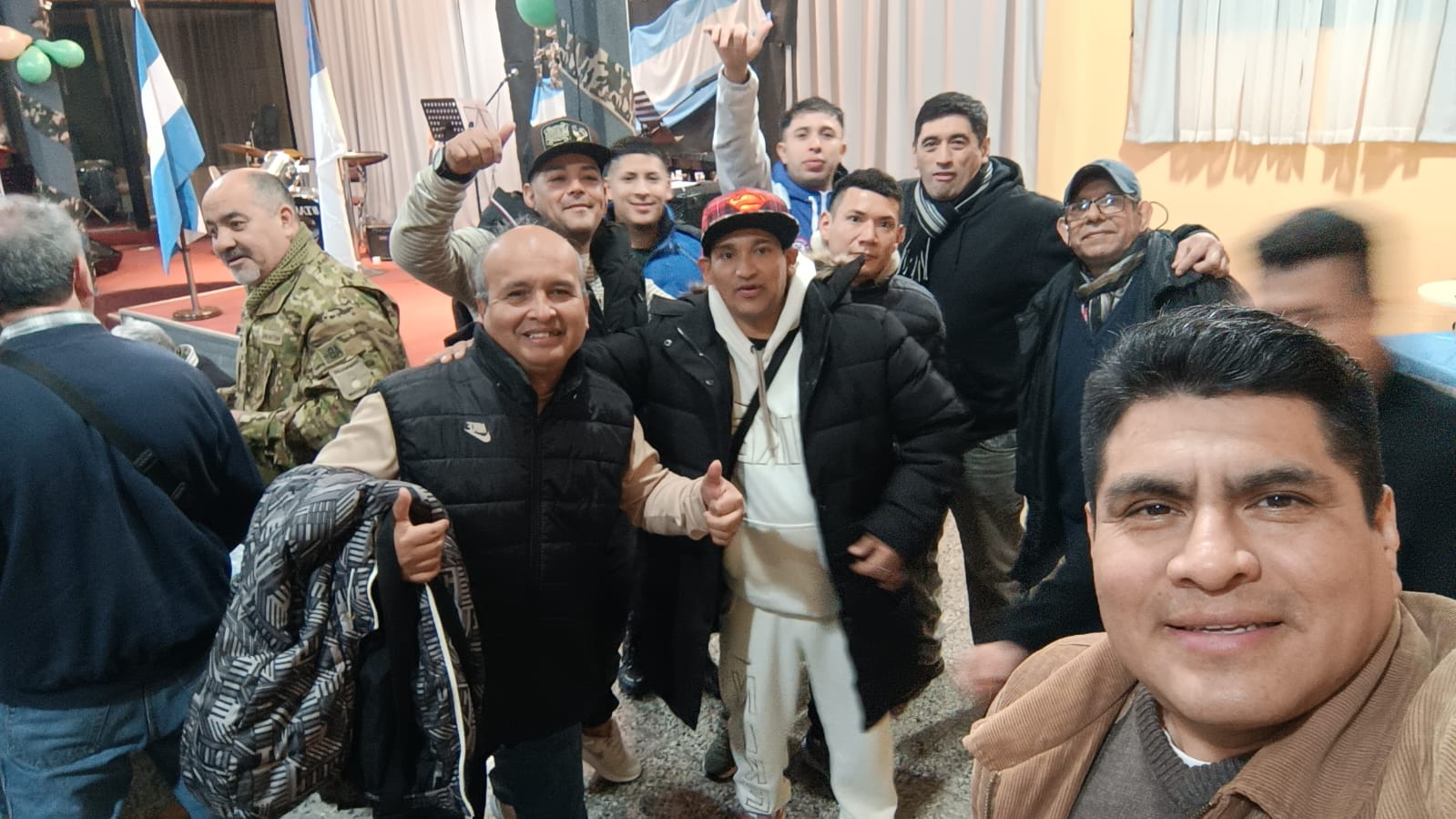
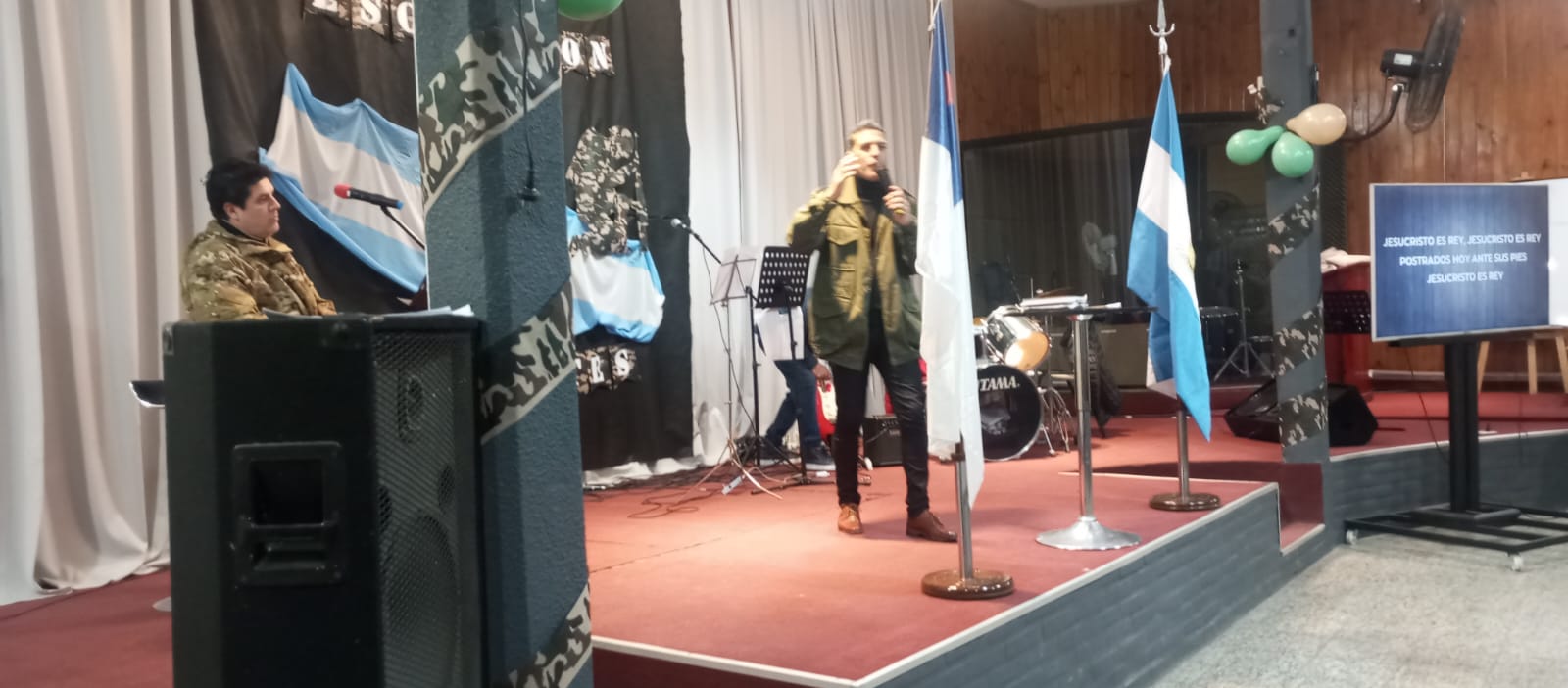
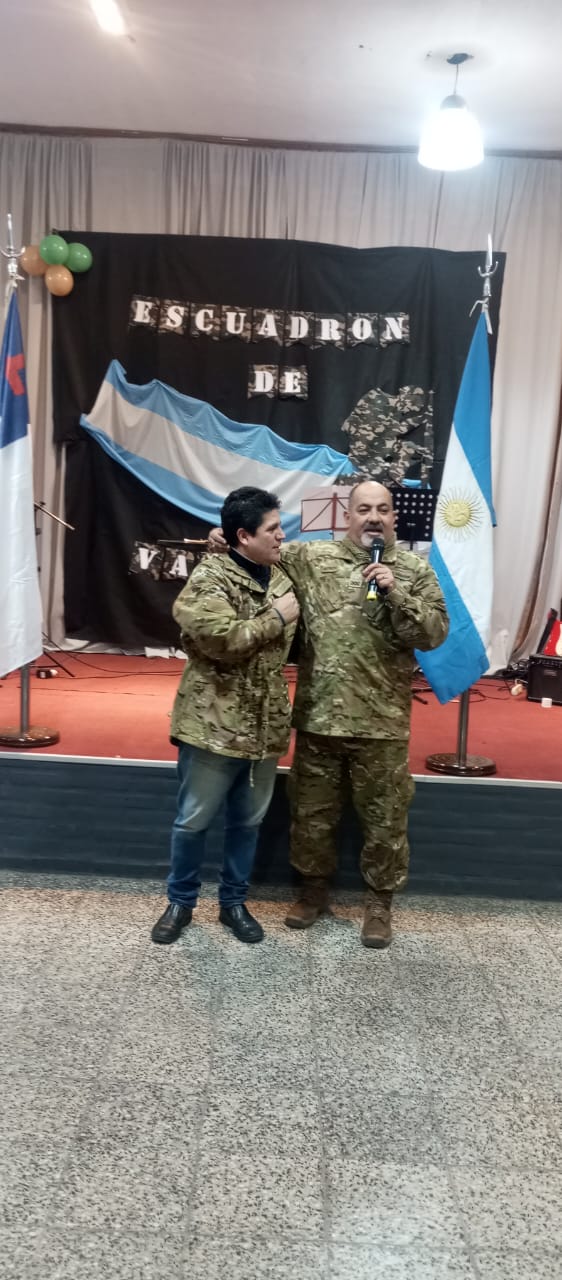

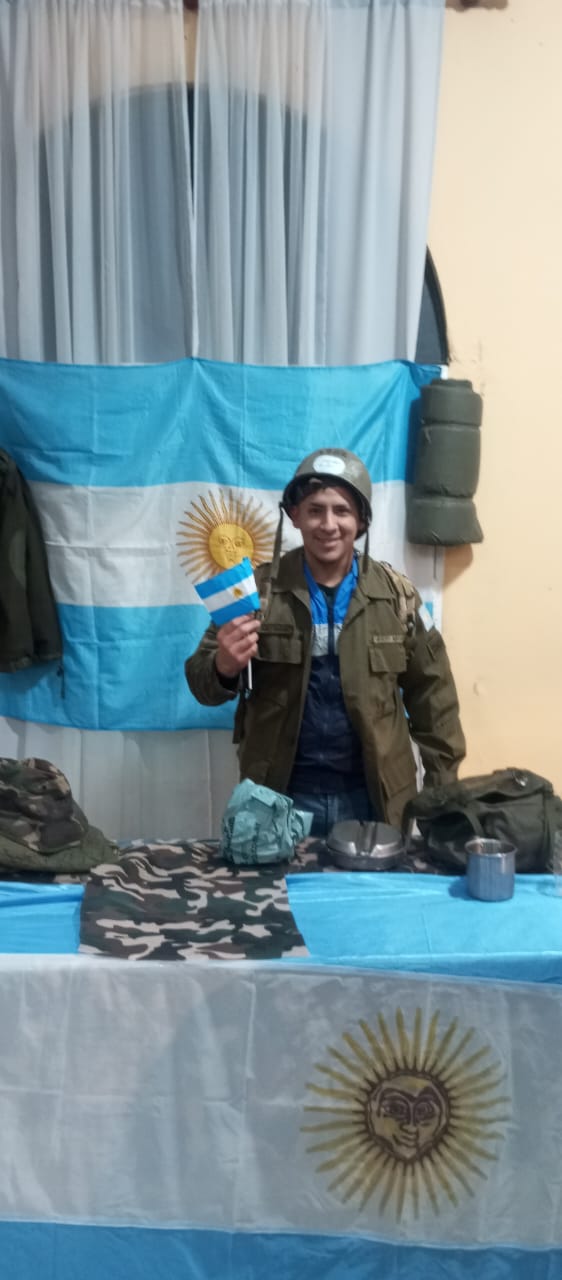
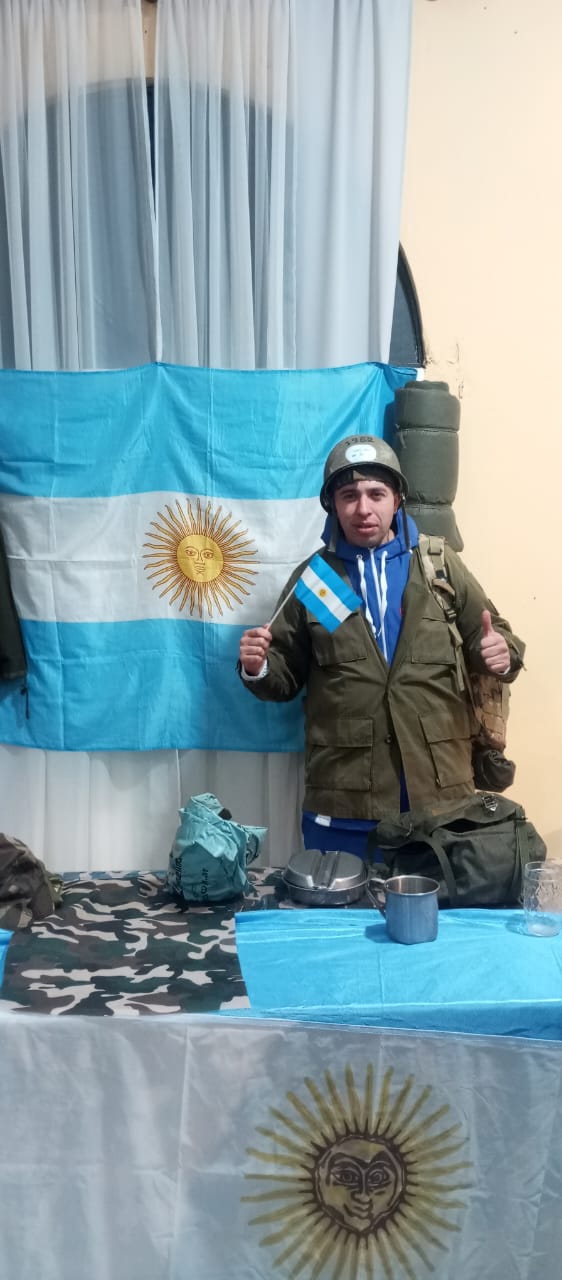

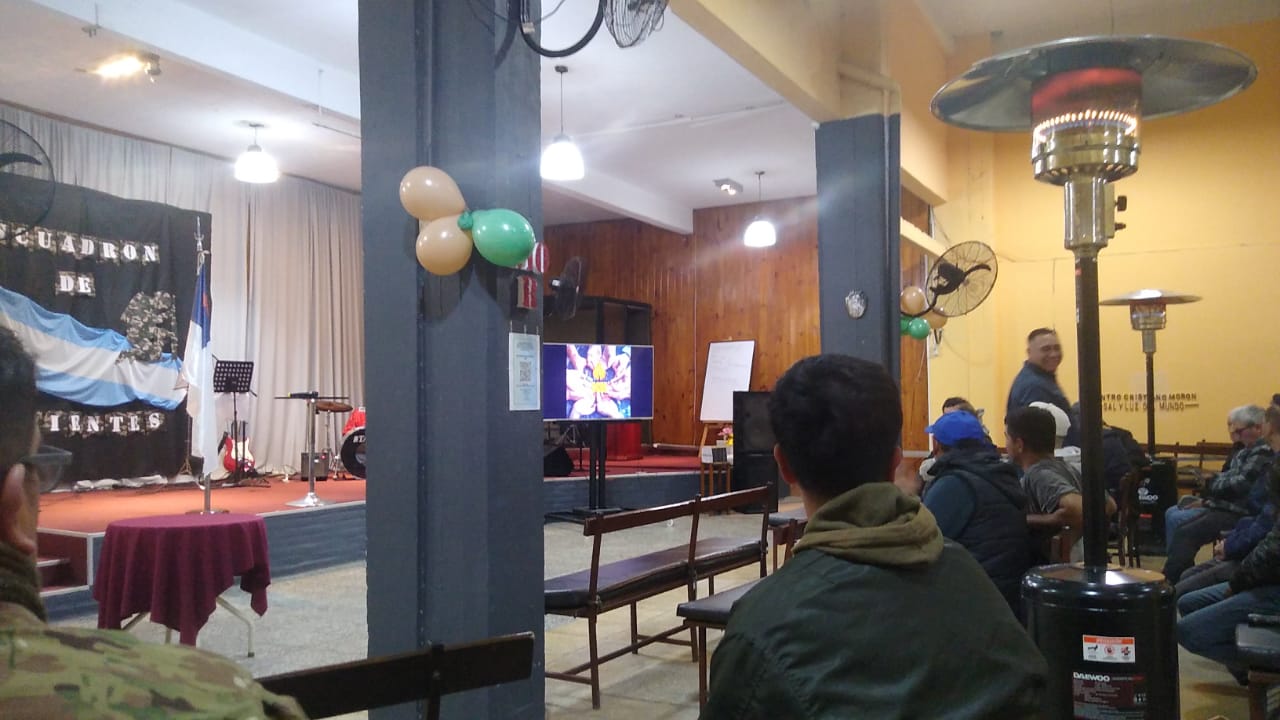
Llegué cuando la tarde ya se había rendido al frío de junio. Desde la calle se oía un leve murmullo que mezclaba risas, acordes de guitarra y el golpeteo metálico de una estufa a gas. Al entrar, lo primero que dominó mi vista fue el escenario: un telón negro con letras blancas que proclamaban “Escuadrón de Valientes”, flanqueado por la bandera argentina y la bandera cristiana. Las luces cálidas recortaban las siluetas de dos hombres con chaquetas de camuflaje, ensayando un abrazo que decía más que cualquier discurso.
En el centro, Rubén—capitán espiritual de la reunión—tomó el micrófono. A su lado, Marcelo, recién llegado del interior de la provincia, sostenía un mate que temblaba apenas entre sus manos. Rubén le apoyó el brazo sobre los hombros y comenzó:
—Cuando uno cae, a veces piensa que no hay regreso. Pero aquí estamos, para demostrar lo contrario.
Marcelo asintió. El auditorio guardó silencio; a más de uno se le formó un nudo simple de emoción en la garganta. Ese abrazo inicial no fue protocolo: fue un salvavidas que demostró que, entre valientes, el primer escudo es el calor humano.
Tras el testimonio subió el volumen de las palmas—y de los parlantes—y, sin aviso, los bancos de adelante se llenaron de juventud. En la siguiente imagen quedaron inmortalizados: Juanjo con su gorra de Superman, Ezequiel con buzo azul de equipo de barrio y Gustavo (con Buff y chomba a rayas) conocidos por sus bromas que alivian cualquier ambiente. Detrás flameaba la bandera celeste y blanca, improvisada en la pared—aunque nadie lo diría: se la veía firme como en mástil oficial.
Posaron todos para la foto grupal. Algunos hicieron la clásica seña de pulgares arriba; otros, la señal de la victoria. Berni—en el centro, con lentes y uniforme pixelado—levantó el mate como copa de campeón, y Rubén, detrás, sonrió satisfecho: su escuadrón estaba completo.
Volví a mi asiento. Desde ahí observé el santuario convertido en aula y cuartel a la vez. Bancos de madera oscura, un televisor reproduciendo diapositivas de fe y resiliencia, globos verdes y anaranjados en las columnas de cemento: pequeños gestos de fiesta en medio del clima invernal. Cafés humeantes pasaban de mano en mano; la estufa parada chisporroteaba como fogón patrio. En una pantalla gigante apareció una flor abriéndose lentamente—recordatorio visual de que hasta los terrenos más duros dan vida cuando reciben luz.
El momento cumbre llegó cuando invitaron a todos a acercarse al frente. Marcelo, ya repuesto de los nervios, sostuvo el extremo de una gran bandera argentina que descansaba sobre la baranda del escenario. A su costado, un puñado de hombres—unos con camperas negras, otros con chalecos inflados por el frío—extendieron sus manos para sujetarla. Parecían no solo levantar un símbolo patrio, sino también el peso de sus propias historias.
Rubén, de pie tras el atril, proclamó:
—No somos soldados de guerra, somos soldados de esperanza. Juramos lealtad al propósito que nos trajo hasta aquí: levantarnos y levantar a otros que aún creen que todo está perdido.
Un “amén” resonó. Hubo aplausos. Algunos se abrazaron, otros se secaron discretamente los ojos. La música comenzó a sonar—un himno que hablaba de libertad y de segundas oportunidades—mientras las voces se unían en un coro apenas afinado, pero absolutamente sincero.
Salimos tarde, cuando la noche ya era dueña del silencio barrial. Afuera, el aliento se volvía vapor y las manos buscaban bolsillos. Uno de los muchachos sostuvo la puerta para que pasaran los camuflados; otro prometió un asado “cuando el sol vuelva”. Nadie se fue sin un abrazo, sin un “Nos vemos la próxima” cargado de certeza.
A la distancia, desde la vereda, observé por última vez el salón. Las luces se apagaban una a una, como luciérnagas que descansan. Pero algo quedaba encendido adentro: una llama invisible, alimentada por hombres que, esa noche, entendieron que la verdadera valentía no se mide por medallas ni uniformes… sino por la capacidad de sostener al hermano cuando flaquea.
Y así, bajo el cielo helado, emprendí la vuelta a casa con un nuevo lema martillando en el pecho:
—No siempre escogemos las batallas, pero sí podemos escoger pelear juntos.
